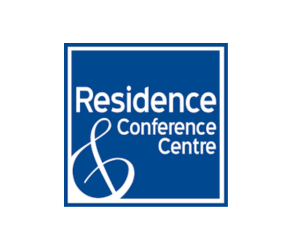Mental Health of Young Athletes
Mental illness is an extremely common and important issue among teenagers. Although sports and physical activity have tremendous mental health benefits, young athletes are not exempt from the ongoing mental health crisis.
In fact, some aspects of being a competitive athlete like perfectionism, external pressures to perform or severe injuries may increase the risk of mental illness. Improving mental health and well-being, on the other hand, can not only help make young athletes feel better—it can even have important benefits for performance and reducing illness and injury risk.
![]()
What's the best way to support your child's mental health?
The single most important things that parents can do is create a safe environment that promotes ongoing conversations about mental health for your child.
Some tips to keep in mind:
- Assure your child that they can tell you anything, without judgement.
- Recognize and communicate to your child that MENTAL HEALTH IS HEALTH. The goal is to normalize conversations about it.
- Bring up the topic of mental health yourself, and make yourself available when your child wants to talk. (Consider sharing this "Teen to Teen" video reel, at right, to help spark discussion.)
Some symptoms of anxiety can include:
-
significant worries about things before they happen
-
constant worries or concerns about family, school, friends or activities
-
fears of embarrassment or making mistakes
-
low self-esteem and lack of self-confidence
Some symptoms of depression can include:
-
feeling or appearing depressed, sad, tearful or irritable
-
loss of interest in friends, academics or activities
-
changes in appetite and/or weight
-
sleeping more or less than usual; having more trouble concentrating
If you think that your child is struggling with their mental health, talk with them and help them to get help.
Encourage athletes to talk about with you or with other family members, friends and healthcare providers. You can also call the Suicide and Crisis Lifeline (9-8-8).
Resources for adolescent athletes & all teens
Here are some helpful resources for families:
- Mental Health Education Resources (NCAA Sports Science Institute)
- Mental Health (Team USA)
- Mental Health Issues and Psychological Factors in Athletes: Detection, Management, Effect on Performance and Prevention (American Medical Society for Sports Medicine position statement)
- Mental Health for Adolescents (U.S. Department of Health and Human Services)
- Help for Mental Illnesses (National Institute of Mental Health)
- Facts for Families (American Academy of Child and Adolescent Psychiatry)
- Youth Mental Health First Aid Course (National Council for Mental Wellbeing)
- 988 Suicide & Crisis Lifeline
Remember
If you have any questions or concerns about your child's mental health, don't hesitate to talk with your pediatrician.
More information
- How to Talk About Mental Health With Your Child and Their Pediatrician
- Teen Mental Health: How to Know When Your Child Needs Help
- Sports Physical: When, Where, Who Should Do It?
- 3 Mental Skills Children Need for Sports
- Healthy Self-Care for Teens: 4 Ways Families Can Help
- How We Can Support the Mental Health of Young Athletes (AAP Voices)
Source: https://www.healthychildren.org/English/healthy-living/sports/Pages/mental-health-in-teen-athletes.aspx

























